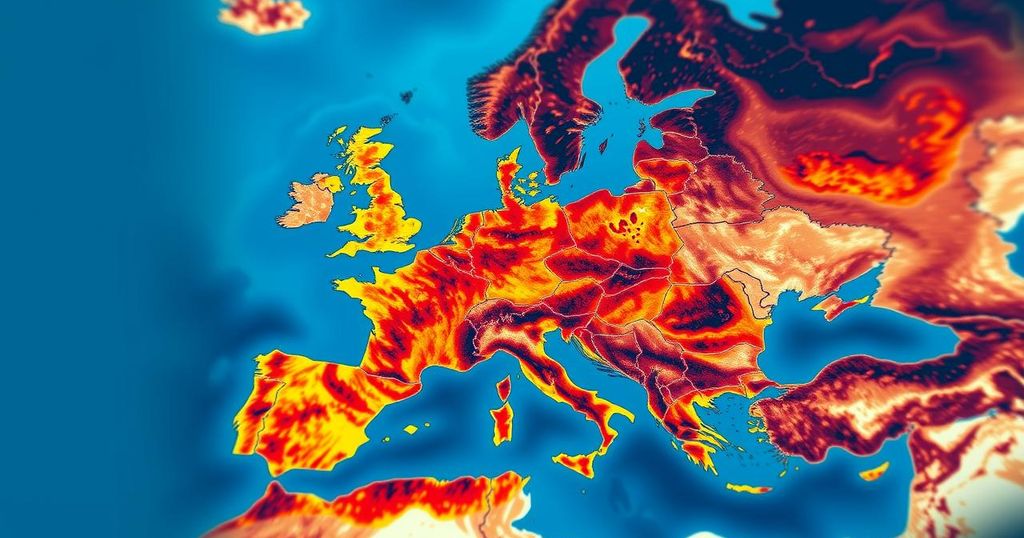Summer 2023 marked one of Europe’s hottest seasons, resulting in over 47,000 heat-related deaths, primarily in southern countries. Research indicates that without prior adaptations, the death toll could have been significantly worse. Urgent action to protect vulnerable populations and reduce carbon emissions is essential to tackle the climate crisis.
Summer 2023 swept across Europe like an unforgiving furnace, with ferocious heat unleashing a devastating toll. In a groundbreaking study led by Elisa Gallo and her skilled team at ISGlobal in Barcelona, the grim reality emerged: over 47,000 lives were lost due to the relentless heat wave that gripped the continent. Southern European nations such as Spain, Portugal, Cyprus, Bulgaria, Italy, and Greece bore the brunt of this searing catastrophe. Gallo emphasizes that the staggering figure could have soared even higher without the protective measures that have gradually been woven into the fabric of society over the past two decades. The increasing prevalence of home air conditioning and the introduction of heat wave alert systems are lifelines that have mitigated the ferocity of such extreme weather events. Gallo’s research paints a stark picture of possibilities; if the sweltering temperatures had struck two decades earlier, the death toll could have been a staggering 80% larger. “In the last years, we worked to better adapt to climate change … but this is not enough. … The temperature is increasing at twice the rate in Europe compared to the global average,” she cautions, highlighting the urgent need for continued vigilance. As the climate crisis unfolds and extreme heat waves become more routine, Gallo underscores the imperative of protecting vulnerable individuals while also addressing the root causes of climate change through the reduction of carbon pollution. This summer’s heat narrative serves as a sobering reminder of the intertwining destinies of humanity and our increasingly volatile planet.
The increase in global temperatures has rendered summer 2023 one of the hottest periods in European history, showcasing the severe impacts of climate change. Research from ISGlobal reveals alarming statistics about the health risks posed by prolonged heat exposure, particularly in southern European countries known for their already warm climates. This context is crucial as it reflects the ongoing challenges faced by public health systems and highlights the need for adaptive infrastructure to protect lives against such extreme weather phenomena.
In summary, the summer of 2023 has highlighted the severe consequences that climate change can yield, resulting in over 47,000 heat-related deaths in Europe. While societal adaptations have lessened the impact, the escalating temperatures and greater frequency of deadly heat waves stress the urgency of protecting vulnerable populations and taking active steps to combat global warming. Gallo’s insights serve as both a warning and a call to action, emphasizing the dual responsibility of immediate protective measures and long-term solutions to climate change.
Original Source: yaleclimateconnections.org

Leave a Reply